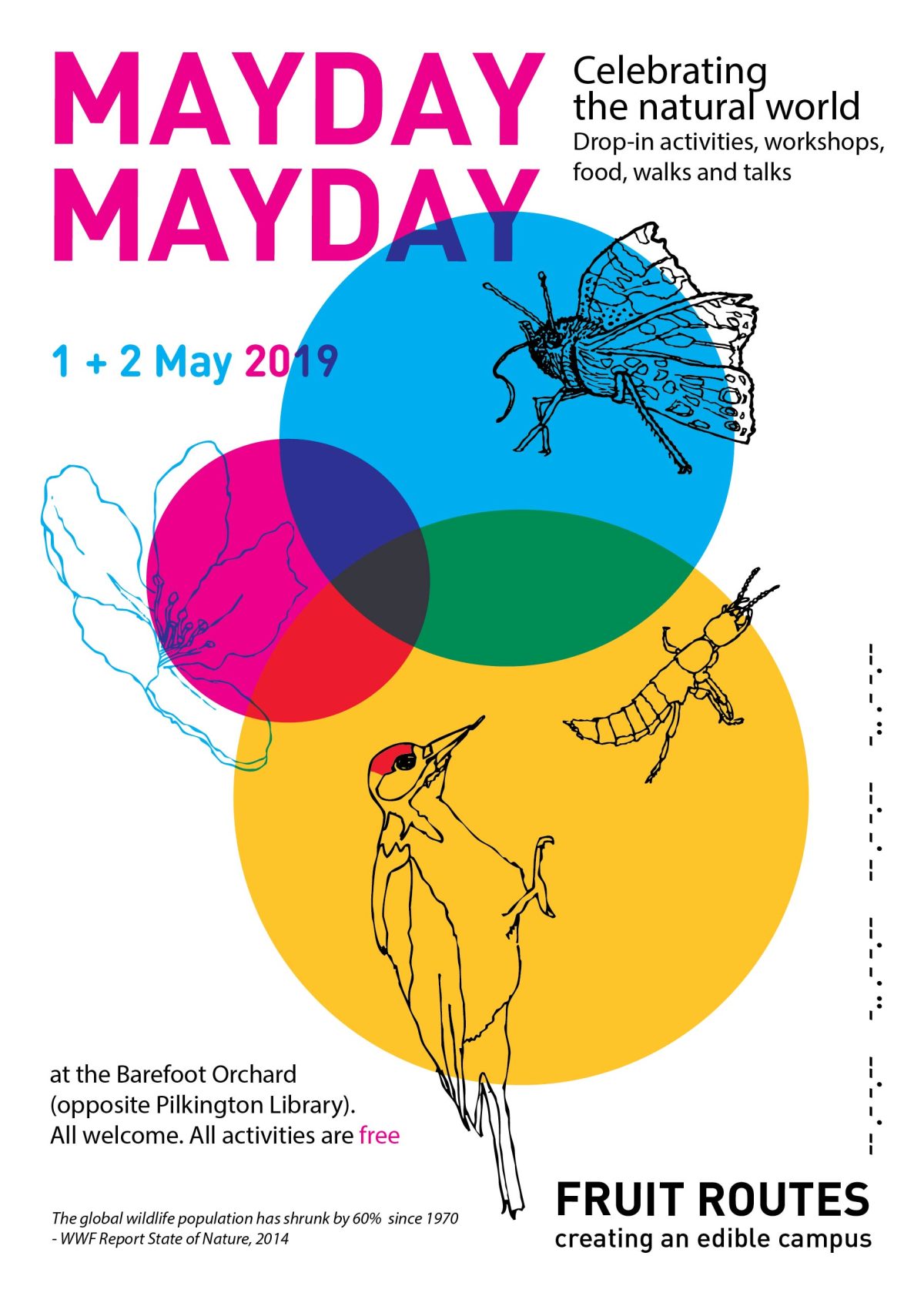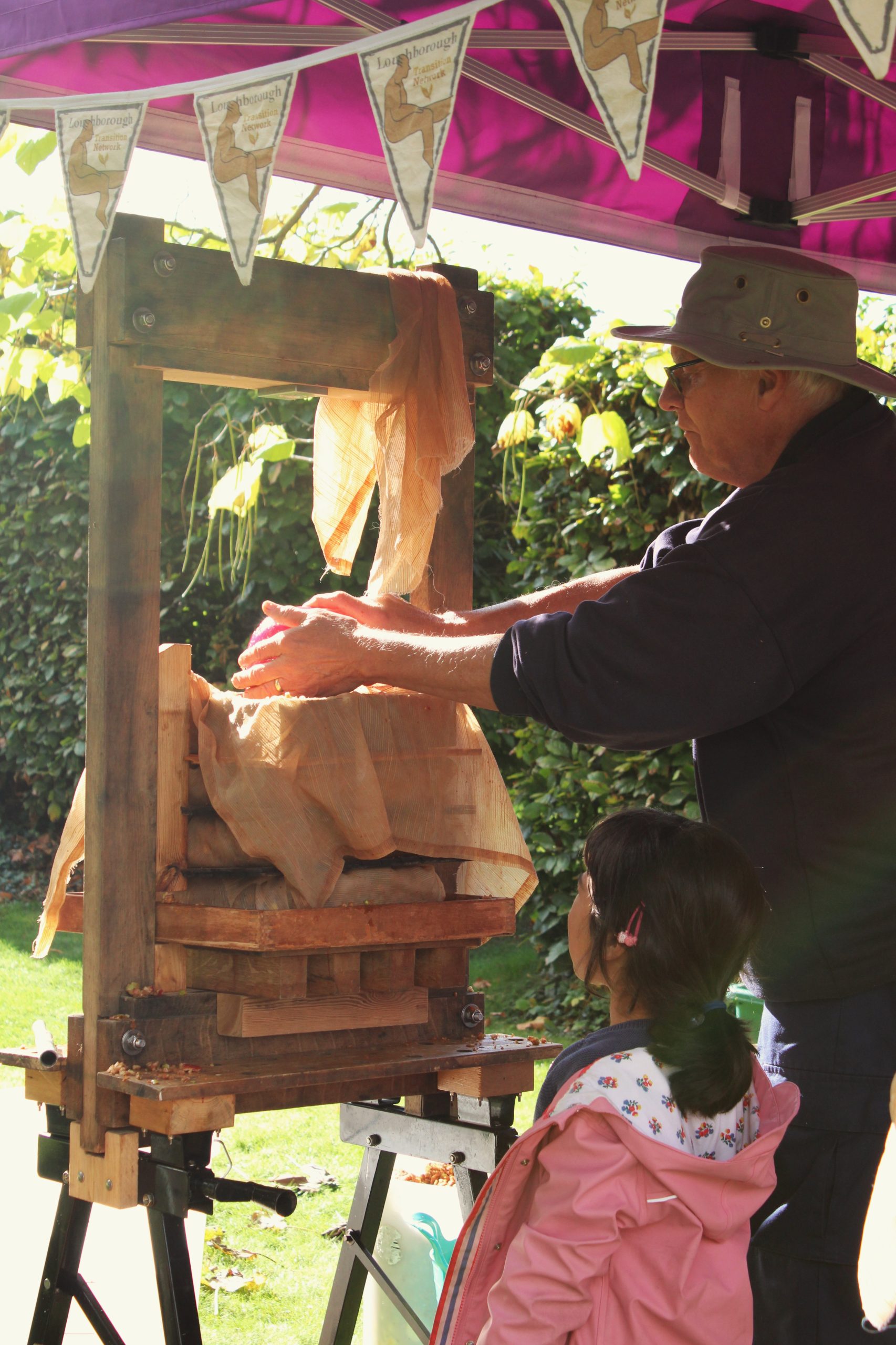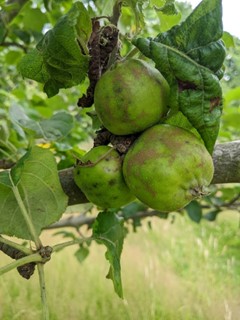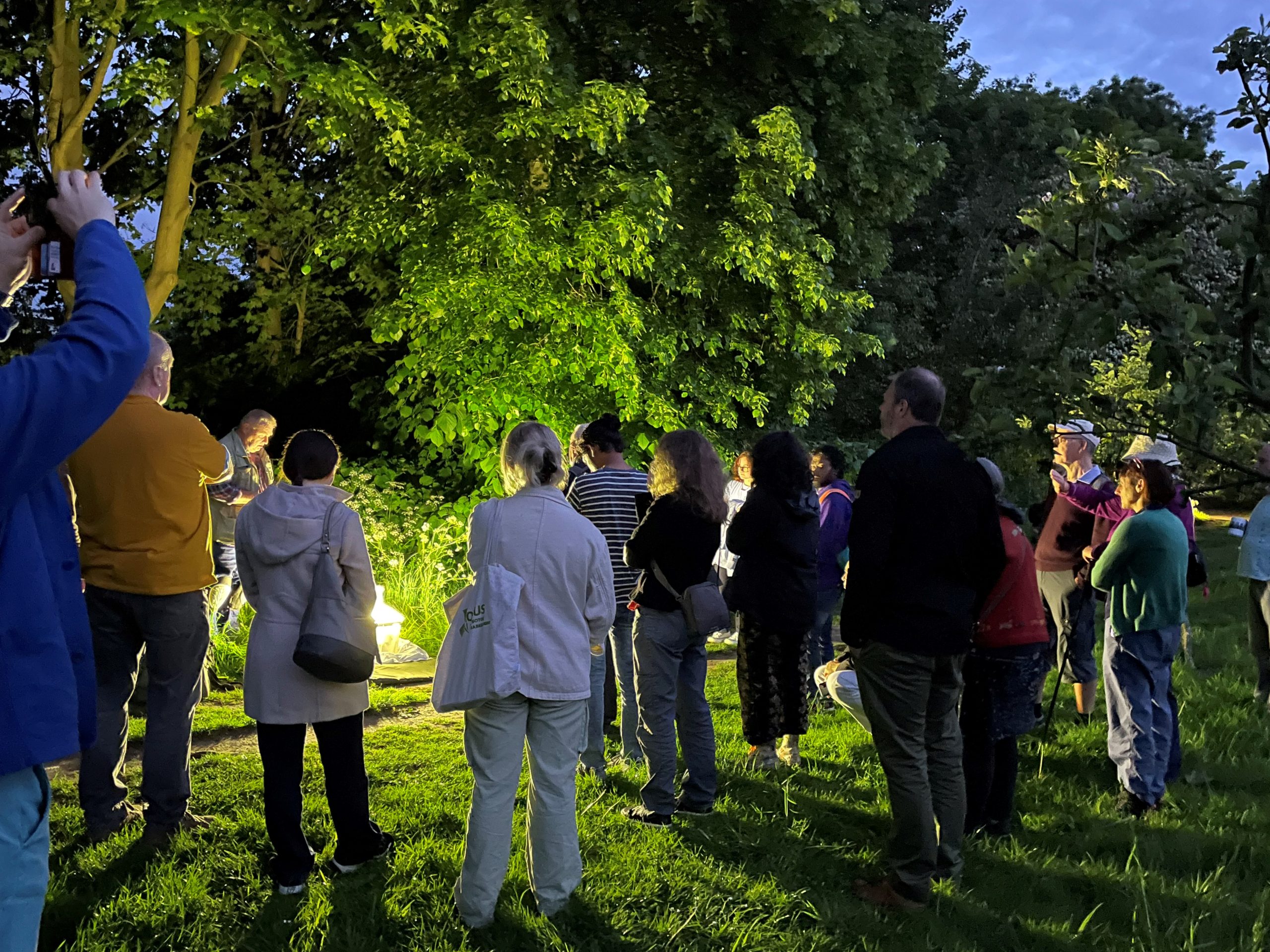
Join us on May Day, the first day of Summer! Here are fuller details of what is on offer this year. The programme is designed around celebrating, raising awareness, observing, accommodating and responding to the wider natural world and the needs of the more-than-human communities on campus.
May Day used to be celebrated with Morris dancing, a maypole and the crowning of a May Queen. It used to be the official acknowledgement of spring blossom but weather patterns are changing. May 1st is still International Workers’ Day and to celebrate renewal we are inviting university workers, students and staff and members of the public to come and be renewed by participating in the different Fruit Routes events.
There is loads on offer from just taking time out with a blanket and sitting under the trees as part of our own version of “ohanami” (Japanese flower viewing) to moth trapping late into the night. You could try out drawing or weaving in the orchard. We will be finding out more about how architecture can provide habitat for wildlife and be inspired by nature and we will learn how insects are responding and adapting to the pressures of climate warming and shrinking habitats. We will also be reflecting on our relationship to the natural world, what we value and what we want to change including creating and sending morse code messages into the ether. Many of these activites are drop-in and all are free.
12-1 Fruit Routes Walk with artist Anne-Marie Culhane. Visit the 1km route of edible fruit and nut trees and learn more about this award-winning project. Fruit Routes creates an enhanced habitat on the campus and provides free food for humans and wildlife from over 150 fruit and nut trees and through educating people about foraging. Anne-Marie is the founder and designer of Fruit Routes and will share different perspectives on this cultural and natural resource for students, staff and the local community
1-6 Picnic in the orchard inspired by Ohanami “flower viewing” festivals in Japan. Drop by and bring lunch, tea or an afternoon snack to share and enjoy among the trees. Members of the Japanese Society will be cooking traditional Japanese dishes to share.
1-3 Orchard Draw-in with Marion Arnold, lecturer, School of the Arts.
Even the most familiar object changes altogether if you set about drawing it. You realise that you did not know it, that you had never actually seen it (Paul Valéry, 19th-century poet and writer).
Bring your curiosity about nature and explore and depict trees in the landscape, leaves, flowers and fruit forming on the trees. Drawing experience is not required. Basic materials will be supplied or bring your own. Drop in at any time to take part.
1-3 Pamphlet-making with Gillian Whiteley, lecturer, School of the Arts. Drop-in to the yurt make a pamphlet about what you want to protect in the natural world. Pamphleteering has a long history and powerful history in protest.
A pamphlet may be written either for or against somebody or something, but in essence it is always a protest.’ George Orwell
‘…the essence of pamphleteering, is to have something you want to say now, to as many people as possible…’ George Orwell.
1-3 Visit the Bees in the campus apiary. Meet at Barefoot Orchard. The University has its own thriving apiary housing a number of active hives which produce the highly popular Loughborough Gold honey. Visit the apiary and find out more about the art of beekeeping and the symbiotic relationship between the bees and Fruit Routes. Each visit lasts about half an hour. Booking required environment@lboro.ac.uk
3.30-5 House of Nature How do we live with nature? A talk and hands-on workshop exploring architecture inspired by nature and architecture that creates space for wildlife with Matyas Gutai, Lecturer, School of Architecture. Architecture students are also being invited to respond to a small competition to create a design in response to this theme. Suitable for everyone,
6-8 Foraged teas and chai hosted by Charnwood Chai. Charnwood Chai are a group from Loughborough who bring people across the community together around conversation and tea.
6.30 Letters to Nature Artist John Newling reads from his new book Letters to Nature. John Newling is a friend of Fruit Routes and a pioneer of public art with a social purpose. In 2018, the artist spent 81 consecutive days writing letters to nature. Part truth and reconciliation, part advocacy of an urgent need, part thoughts for future social ecologies, the letters convey the artist’s long-standing reflection on where planet Earth stands today.The Dear Nature letters are by turns tragic, desperate, funny, banal and incisive. Collectively they ask us to think in terms of a personal relationship: nature is another living thing and we need to have a (respectful, apologetic, humble) dialogue. Some people might say this maintains ‘the problem’ but Newling asks us to relate to nature as another living thing, not a service or crisis or quantity. – Chris Fremantle
8.30 Introduction to moths with Graham Finch from the Leicester Entymological Society. The Moth Hotel the biggest moth trap in Europe is visiting Fruit Routes on loan from the Timber Festival. Stay on as night falls to see moths or come back the next morning.
All day
Work with Fruit Routes local poet and world-reknowned haiku expert Paul Conneally to create a morse code May Day May Day transmission to send out into the world. Working with economy of words, what is it that we want to transmit out into the world and who will hear us?
We are delighted to be joined by Tom Dixon amateur radio enthusiast who co-founded the workers-cooperative V3 Power. Day-to-day he teaches people how to build, install and maintain their own renewable energy systems. He is an amateur radio enthusiast particularly interested in making ultra long-range communications using the minimum amount of power.
Join Daniel Fountain in creating a site-specific Orchard Weaving. Daniel Fountain, PhD researcher, School of the Arts exploring queer craft practices in contemporary art. Dan primarily uses discarded objects and textiles, and his current research and artistic practice is concerned with how these marginalised materials might perform as a cipher for queer identity.
2 MAY
8-10 Moths Draw-in A chance to draw the inhabitants of the Moth Hotel before they are released or continue exploring the orchard (see Orchard Draw-In with Marion Arnold). Moth experts will be on hand to share their wisdom. Breakfast pastries provided.
12-1.30 Fruit Routes Walk with artist Anne-Marie Culhane & biologist Professor Jane K Hill, University of York, a specialist in species adaption and climate change. The walk will be followed by a discussion examining how species, in particular insects, are responding to habitat destruction and climate warming and what we can do to help. “Through our research we have shown that species are responding to global climate warming by advancing their phenology (e.g. earlier budburst), by expanding their distributions to higher latitudes/uphill at their leading-edge range margins, and by retreating at their low latitude trailing-edge range margins. However, many species are failing to expand their ranges because of lack of suitable new habitats to colonise, and we are examining methods for designing better-connected landscapes to help promote species’ range expansion.”
Refreshments available all day including teas made from foraged plants


